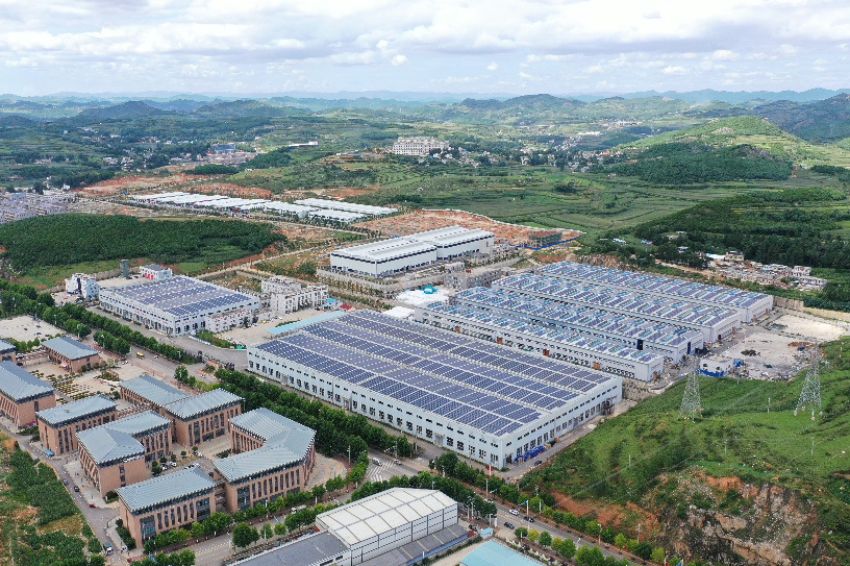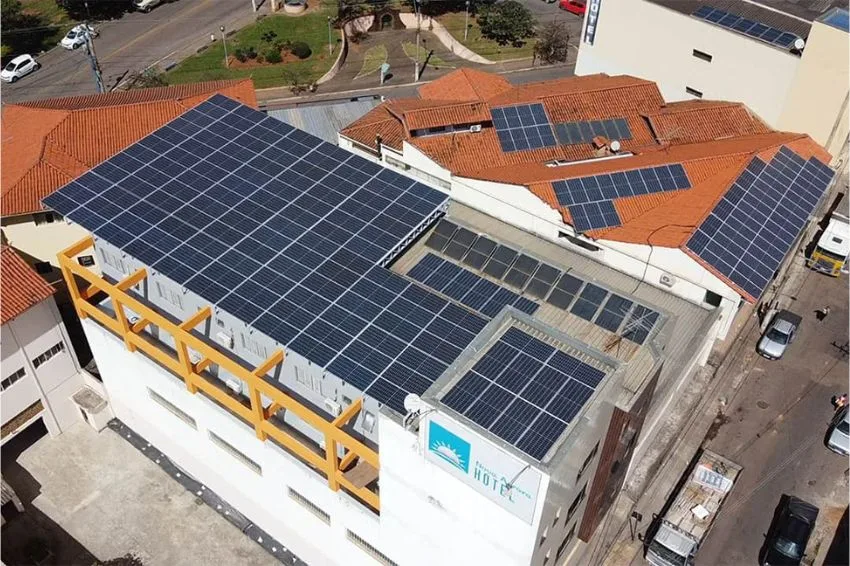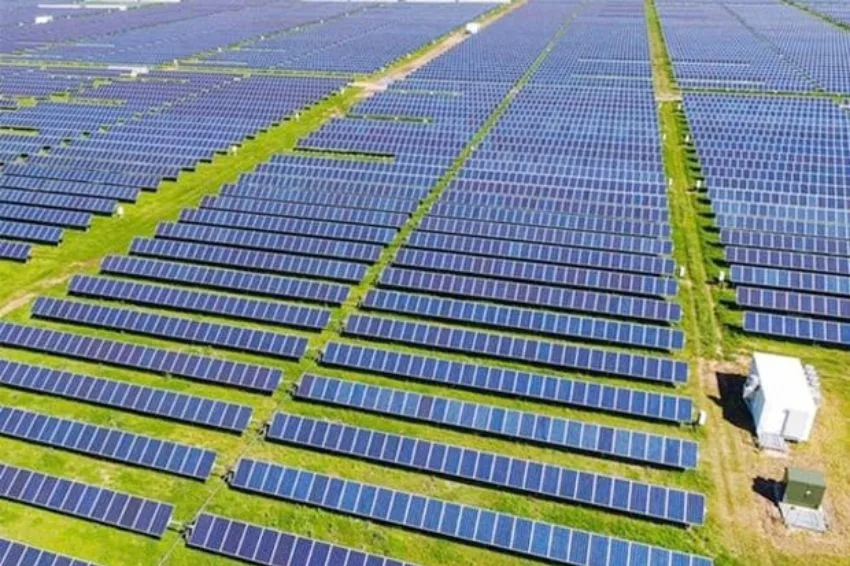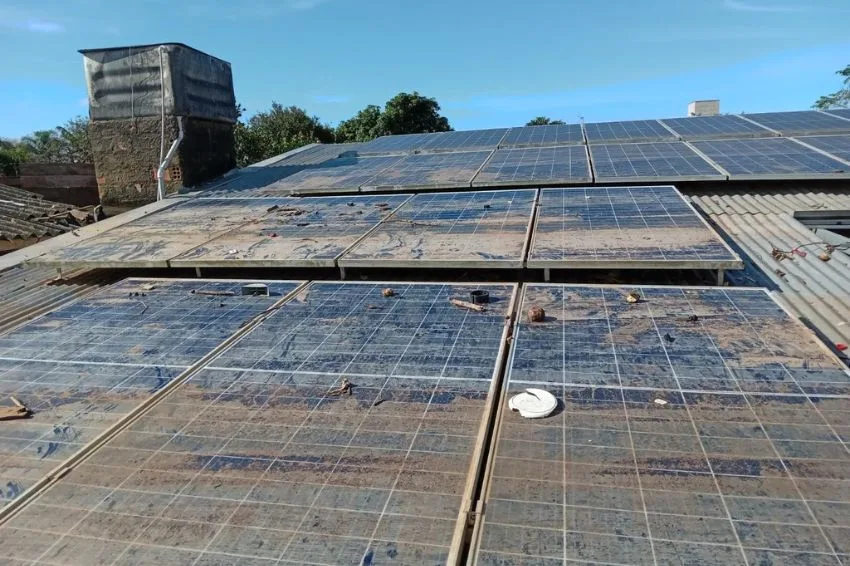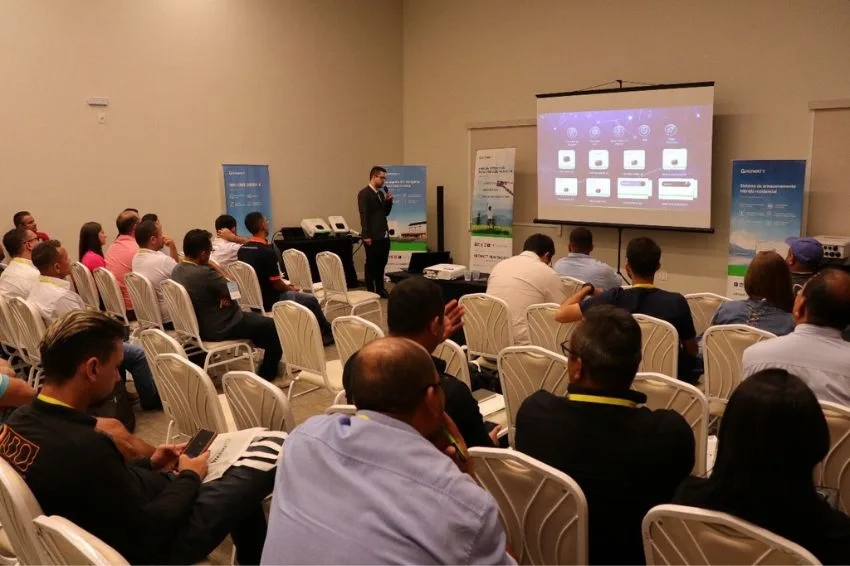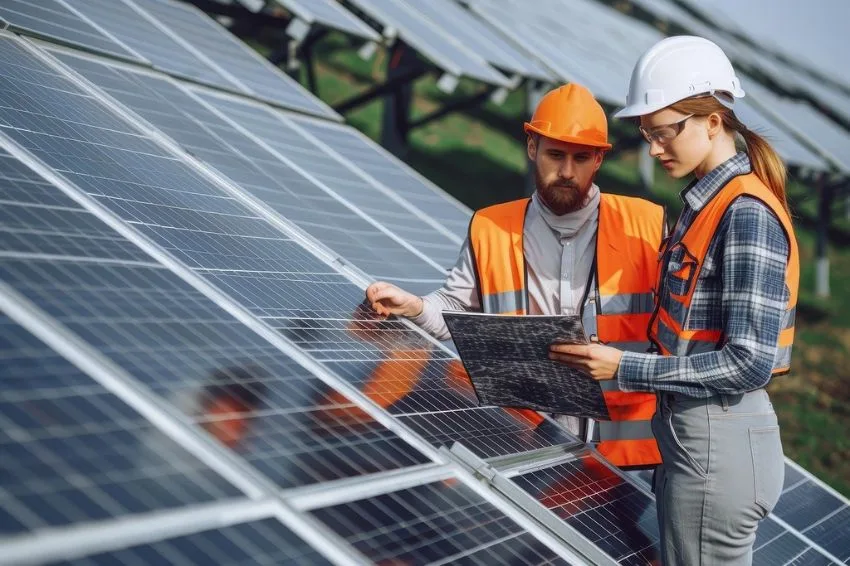A DAS Solar announced that, in a span of five years, more in 10 bases in manufacturing they were built for the company. On October 8, for example, a new development, located in Dalad Banner, Inner Mongolia, was officially put into operation.
The project plans to build a 5.5 GW high-efficiency TOPCon N-Type panel production line and supporting facilities, with a total investment of 1 billion yuan.
Meanwhile, on September 22, another of the company's module manufacturing base in Beihai, China was put into operation. This project is the first initiated by DAS in the city, with a phase I capacity of 4 GW. In the future, the company plans to continue building phase II, targeting a total panel capacity of 10 GW.
According to the manufacturer, planned cell and module capacities will reach 30 GW by the end of 2023. They currently rank ninth in the global ranking for panel shipments and second for N-Type module shipments.
Decentralized manufacturing
The company's bases are spread across east, north, south, northwest and southwest China. “In comparison, other manufacturers that rank sixth to tenth in module shipments mostly have fewer than 10 manufacturing bases. Most of them are clustered in the eastern region of China, where the manufacturing cost is much higher”, they pointed out.
“A diverse and spread-out photovoltaic supply chain will greatly enhance the company's ability to mitigate risks and is also seen as a future development trend. Furthermore, decentralized manufacturing bases have several advantages,” he highlighted. Eduard Krummenauer, Country Manager from the DAS Solar at the Brazil.
Below are the advantages he listed.
A) Bases close to upstream determine the reduction of BOM logistics costs
“The distance between our Zhangzhou base and its upstream will not exceed 200 kilometers,” said a Zhangzhou base manager. “We prefer to be closer to material suppliers, which helps reduce transportation and storage costs and overall manufacturing costs. Cost reduction has always been a central point in module manufacturing”, emphasized the executive.
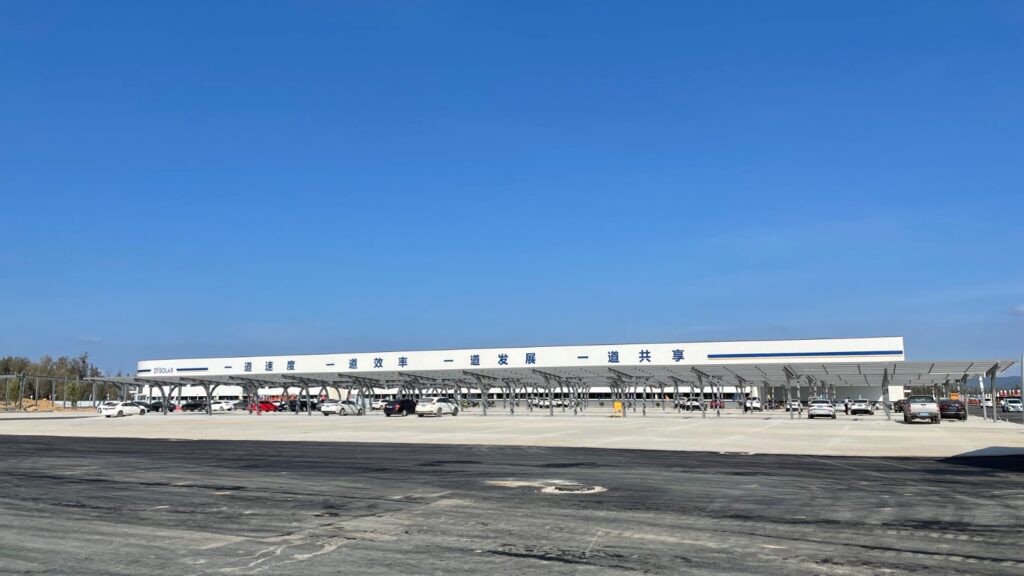
The Zhangzhou base is DAS Solar's first production base established in Fujian province and the only photovoltaic production base in southeast Fujian. The venture has a total investment of 7.9 billion yuan and is designed to produce 7 GW in modules and 10 GW in cells with TOPCon N-Type technology. The products are being exported to more than 60 countries, generating an annual output value of 24 billion yuan.
B) Bases in main transport hubs with the aim of reducing module transport costs
DAS Solar's base in Zhangzhou is just a few kilometers from Zhangzhou Port. Through this port, solar panels produced in Zhangzhou can be conveniently exported to Southeast Asia and other regions.
The aforementioned Beihai base of DAS Solar has a similar situation. Modules manufactured in Beihai are being shipped in bulk to project sites in Guangxi and nearby provinces.
Due to its short distance from Guangdong, Hong Kong and Macau, Beihai has served as an essential connecting city in the “Belt and Road” initiative and the West China land-sea corridor. Its strategic location provides convenient transportation to south and southwest China and for export abroad.
C) Locally adapted manufacturing base
With competition intensifying in the energy sector, increasing scale has become essential for companies. Many professionals have pointed out that while scale is vital, the focus must also be on efficiency, especially the local use of photovoltaics.
According to Krummenauer, this is one of the main advantages of “decentralized manufacturing”. Taking Zhangzhou as an example, situated along the southeast coast of China, prolonged exposure to sunlight makes it a rich solar energy resource and offers favorable conditions for local module use.
A photovoltaic project centered in Yunxiao County, Zhangzhou, which uses panels supplied by DAS Solar's base in Zhangzhou, was recently connected to the grid. This project is also the first centralized project to be completed in Fujian province.
“The high-efficiency bifacial double-glass module provided by DAS Solar base in Zhangzhou, with symmetrical design, not only effectively reduces moisture permeability, but also maximizes the power generation capacity of both sides of the panels,” he explained. .
According to the Country Manager, this design is particularly suitable for humid and hot conditions above water surfaces, ensuring a greater return on energy generation for the project.
“The quality of DAS Solar’s products has not been compromised despite its decentralized manufacturing layout. The group headquarters plays a role as a quality center, implementing consistent standards across the board. DAS Solar also has the help of intelligent technologies, monitoring the manufacturing process and employing 100% automatic detection AI (Artificial Intelligence) in critical positions”, he highlighted.
As a result, last month, DAS Solar received awards such as “Leading national quality company in the photovoltaic sector”; “Leading national quality brand in the photovoltaic sector”; “National qualified products stable in quality inspection”; and “National Quality Integrity Reference Enterprise” by CAQI (Chinese Association of Quality Inspection).
Formation of strategic synergy with local economic development
The locations chosen for DAS's main manufacturing bases are closely aligned with industrial strategic planning and local economic development. Cases of mutual wins between local governments and major enterprises are exemplified by Nio (a major electric vehicle company) and Hefei, Anhui province.
“Hefei has played a crucial role in the development of Nio, the new automobile powerhouse, as a sponsor. Vice versa, Nio also plays a leading role in local aggregation of the vehicle industry chain, while Hefei is pursuing promising sectors during its industrial upgrading,” he said Eduard Krummenauer.
Weining County, where the DAS Solar base is located, was once nationally recognized as a deeply poor county, and belongs to the Bijie experimental zone in Guizhou.
“Established in 1988, this experimental zone was created by the State Council for development, poverty alleviation and green construction. In the last three decades, more than 300,000 people have been lifted out of poverty,” he said.
In recent years, companies such as DAS Solar have made contributions to the development of the area. In January this year, phase I of the module factory in Weining began trial production. With a total investment of 310 million yuan, the project generated up to 400 local jobs.
In August of this year, phase II of the Weining base began construction. On the day of the groundbreaking ceremony, the local government and DAS signed a cooperation agreement to build an “Energy Industry Talent Production and Training Base”, with the aim of transforming Weining into a power training center. talents to the market.
The agreement proposes that local schools such as Guizhou Industrial and Trade Vocational College and Weining Secondary Vocational School establish relevant courses to provide 3,000 skilled workers for DAS Solar to achieve high-quality development of local vocational education and related sectors.
Secondly, in addition to bringing together talents, DAS Solar has also diversified its layout around photovoltaic panel manufacturing to bring the local upstream and downstream industry chain into synergistic development.
A manager at the aforementioned Zhangzhou base shared with China Energy Network that DAS Solar's Zhangzhou base has formed close partnerships with local companies.
At the Weining base, DAS Solar has established itself in the Changtong Weining New Energy Industrial Park, where it has proposed a plan to build a “complete industrial chain” base that incorporates module manufacturing, energy storage, inverters and cables.
A representative of the industrial park noted: “We will continue to attract more companies to establish themselves, and then establish the Weining New Energy Industrial Alliance, which will effectively stimulate the development of local logistics, helping to transform the county into an industrial powerhouse and revitalizing the rural economy”.
“DAS Solar’s ‘smart factory’ and ‘zero carbon factory’ initiatives have also achieved notable successes. It is understood that DAS Solar's base in Taizhou has been recognized as a 'Smart Manufacturing Demonstration Workshop of Jiangsu Province', while the Quzhou base has been listed as a 'Factory of the Future' in Zhejiang Province,” concluded the specialist.


